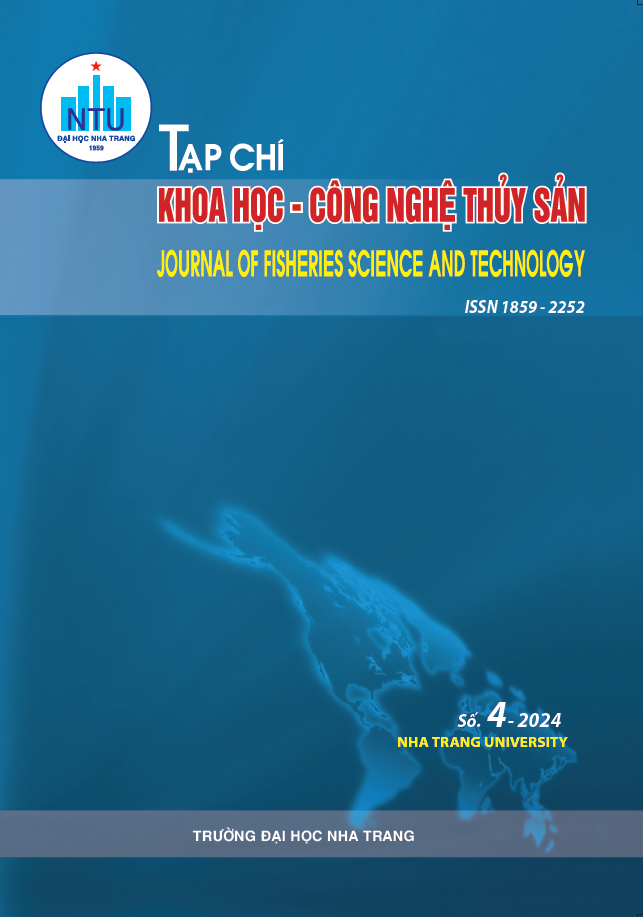##plugins.themes.huaf_theme.article.main##
Abstract
Environmental pollution by nutrients released from aquaculture activities leads to two main negative impacts that are deterioration of water quality and changes in the bottom environment. Waste water from aquaculture facilities, especially intensive aquaculture, contains many nutrients and metabolites from nutrients in dissolved form (such as soluble metabolic waste, dissolved nutrients from feed and feces) or solid waste (uneaten feed and feces). For the water column, wastes increase the nutrient content in the receiving waters that leads to eutrophication. For the bottom substrate, the accumulation of wastes changes the habitat, especially anaerobic conditions. This is the main reason causing negative affects on the benthic biota. Addressing this problem requires a dual approach of zoning management and technical improvements, including enhanced farming practices and wastewater treatment techniques, to mitigate the environmental impact of aquaculture activities.
Keywords: Environmental pollution, dissolved nutrients, nitrogen, phosphorus, solids

